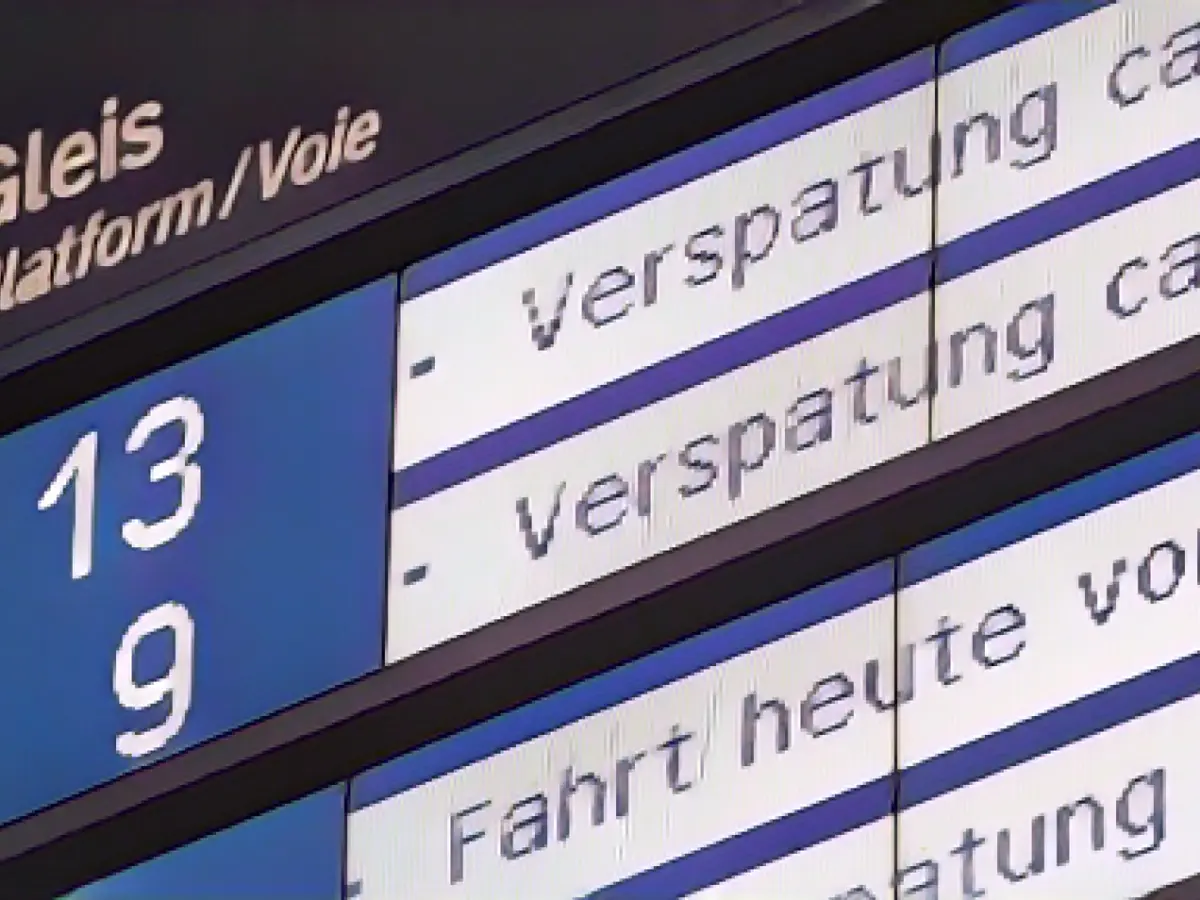Traffic - Almost every third rail traveler arrives late at their destination
Almost every third passenger on Deutsche Bahn 's long-distance services was affected by delays this year. That was roughly as many as in 2022 as a whole, according to a response from Deutsche Bahn to a question from Green Party transport politician Matthias Gastel. This is available to the Deutsche Presse-Agentur. According to the answer, around 69.6 percent of rail travelers arrived at their destination on time between January and November of this year. All others were delayed.
The so-called passenger punctuality differs from the punctuality statistics that Deutsche Bahn publishes online every month. The latter only shows how many trains were unpunctual in the respective month, i.e. arrived at their destination at least six minutes late. In November, this applied to almost every second long-distance train. Deutsche Bahn is a long way from its self-imposed target of train punctuality of more than 70 percent by 2023.
Passenger punctuality, on the other hand, measures when individual passengers arrive at their destination. It therefore also takes into account train cancellations or replacement services. A passenger is included in these statistics as delayed if they arrive at their destination at least 15 minutes later than the timetable had planned. According to Deutsche Bahn, passenger punctuality was always over 80% between 2017 and 2020. Since then, it has fallen sharply. So far, Deutsche Bahn has only published these figures once a year, in the annual report of its subsidiary DB Fernverkehr.
Ailing rail network and numerous construction sites
MP Gastel is therefore calling for more regular information. "This information says more about the extent to which passengers are affected than simply counting trains," he said. "If 30 percent of passengers arrive late at their destination, then well over three million people were affected in November alone." A clearly recognizable strategy is needed. In its daily operations, for example, Deutsche Bahn must ensure that trains with high capacity utilization or those with tight connections receive more attention.
The high unreliability of the railroad is mainly due to the rail network, which has been neglected for decades and is dilapidated, outdated and completely overloaded in many places. Numerous construction sites are slowing down train traffic throughout Germany. The German government has therefore pledged billions of euros to fundamentally renovate the existing network in the coming years. Dozens of heavily congested corridors are now to be tackled by 2030, completely closed for around six months at a time and completely renovated.
Work will start next summer on the Riedbahn line between Frankfurt and Mannheim. The line will be fully closed for a few weeks from New Year in order to carry out preparatory measures for the general refurbishment in the second half of the year.
Read also:
- Why there is still no EU funding for green Saar steel
- 3 billion Saar Fund is unconstitutional
- Lack of snow also opens up new opportunities for winter tourism
- Abrupt end to e-car subsidies
The delay issue on Deutsche Bahn's long-distance services is a concern, with around 69.6% of passengers arriving on time between January and November this year, as reported by the German Press Agency. Matthias Gastel, a Green Party transport politician, has called for more regular information about passenger punctuality, citing the impact on millions of consumers. Deutsche Bahn's ailing rail network, neglected for decades and filled with construction sites, is a significant contributor to the high unreliability in long-distance traffic, leading to delays. The German government has committed to investing billions of euros to renovate the existing rail network over the next few years. This includes tackling congested corridors, closing them for renovations, and improving the overall efficiency of the German railroad.
Source: www.stern.de








